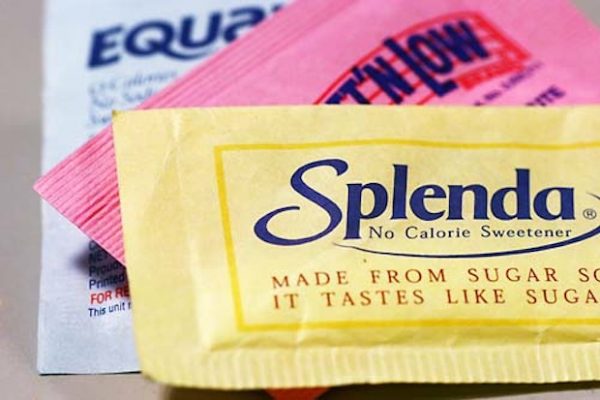Trying to quit your sweet tooth cravings? Well “substituting” sugar may or may not be your best bet. Nowadays almost everything has sugar added to it, and worse, sugar is like a bad crook–it has all different kind of names.
Must Read: 5 Things You Need To Know Before You Try This Fitness Challenge
But not all sugar substitutes are the same, so read this before you start swapping out the real deal. That way you know what “sweet” you should eat.
1. Sugar Is Actually Not So Bad After All
Sugar gets a bad rep. Many people overestimate the actual amount of calories sugar has, when in fact 1 teaspoon only clocks in at 15 calories. Not a big deal when you are adding it to your coffee, however when adding it in heaping amounts to baked goods, those 15 calorie teaspoons can add up. So measure it out and don’t be so quick to swap it out if all you need is a dash.
2. Some Artificial Sweeteners Hide Behind Fancy Names
Often time all non sugar sweeteners get lumped into the category of “artificial sweeteners,” however this is only a fraction of the non sugar game. So what is considered an artificial sweetener? Well the most popular are Equal, Sweet ‘N Low and Splenda, but what most people don’t know is that before these sweeteners were “branded” they went by (and are still listed on some package foods) as Aspartame, Saccharin and Sucralose – respectively. All of these options are synthetic and may be derived from natural substances such as herbs or actual sugar, however they are rather intense since they are many times sweeter than regular sugar. So beware of the aftertaste. Also the constant controversy surrounding artificial sweeteners is that they cause health problems – mainly cancer. However there isn’t any actual research behind this. So if you are a blue, pink and yellow packet lover my recommendation is to consume this artificial stuff in small doses.
3. Alcohol Is A Sneaky Sweetener
Next up in the “I am not real sugar” game is sugar alcohols. These carbohydrates are naturally present in certain fruits and vegetables, but can also be manufactured. Unlike artificial sweeteners they aren’t sweeter than sugar. In fact they are often times less sweet. But here’s the deal, sugar alcohols are not calorie free, however they are lower in calories than regular sugar. You most likely wont be adding this sugar alternative to the food you prepare at home but do understand it is in many processed foods and other products such as chocolate, candy, frozen desserts, chewing gum, toothpaste, mouthwash, baked goods and fruit spreads. So check the labels for the specific name or even the term Xylitol. P.S. The “alcohol” in sugar alcohol does not denote booze…just in cast you were wondering.
4. What The Heck Is A Novel Sweetener?
Novel sweeteners are basically a combination of various types of sweeteners. The most popular being Stevia. It is hard to fit this type of sweetener into one particular category because of what they’re made from and how they’re made, however like sugar alcohols novel sweeteners can have a laxative effect when consumed in large amounts (think anywhere from 10-50 grams). So if you are experiencing bloating, intestinal gas or diarrhea after your artificially sweetened treat then it may be time back off.
5. Moderation Is The Name Of The Game
Well now that you know the truth about sugar and sweeteners the number one take away should be moderation. While one may contain calories and the other is calorie free the body knows what’s up. When you are constantly satisfying your sweet tooth with the fake stuff the body knows it wasn’t the real deal and in turn you may find your sweet cravings increasing rather than decreasing. Remember that artificial sweeteners are super sweet so when you eat them a lot your tolerance for sweet is intensified. That means when you eat things that are already naturally sweet you will still have the craving to add more sugar. So kick your sugar addiction to the curb for good and consume all forms of sugar in – you guessed it- moderation.







